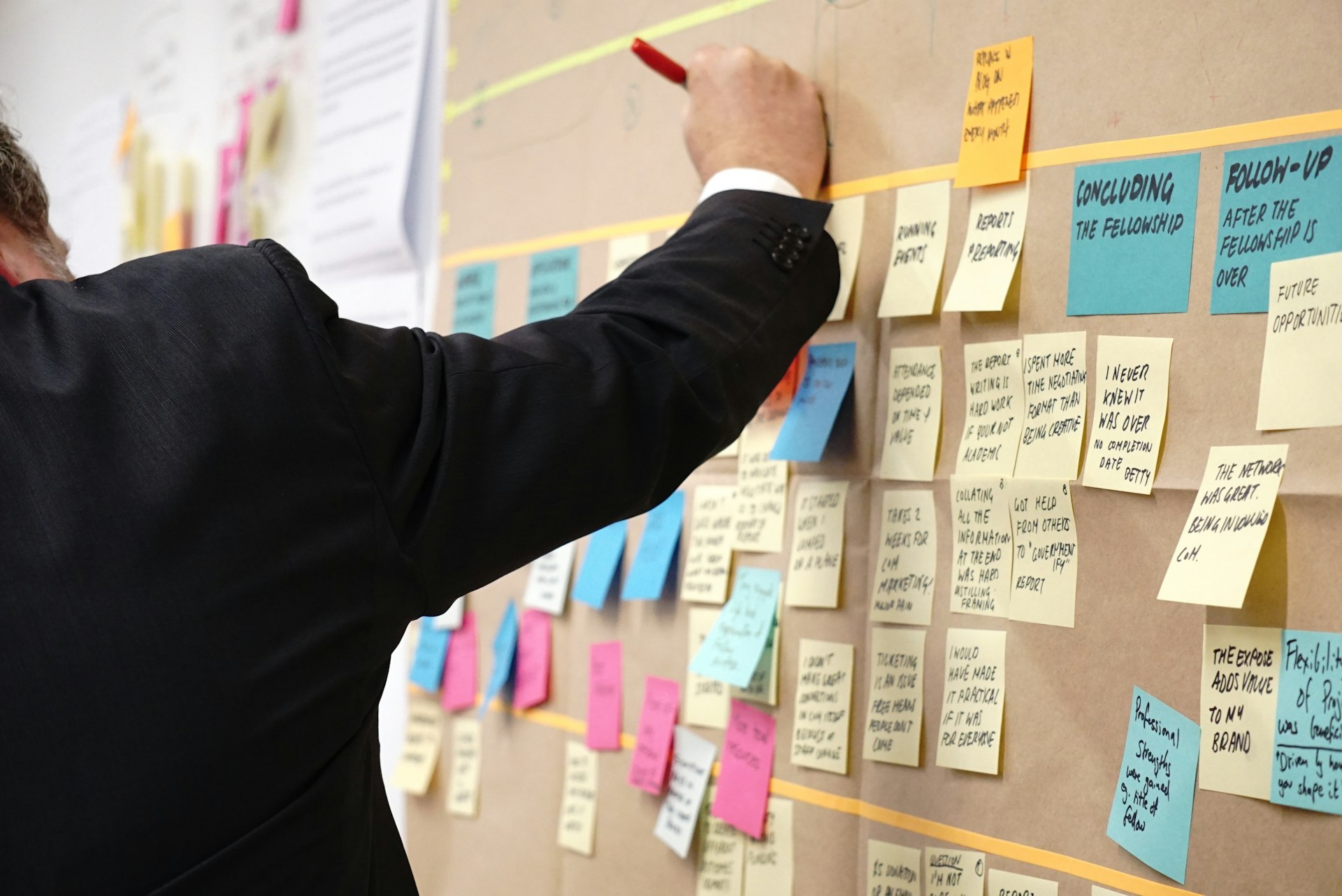Unlocking Emotional Intelligence: Practical Strategies for Everyday Growth

Photo by Md Mahdi on Unsplash
Introduction: Why Emotional Intelligence Matters
Emotional intelligence (EI) shapes how we understand ourselves, interact with others, and handle daily challenges. Research consistently links EI to well-being, effective communication, resilience, and leadership success. Developing emotional intelligence is not reserved for specialists-anyone can cultivate these skills to enrich relationships, improve work performance, and increase life satisfaction [4] .
Understanding Emotional Intelligence: The Four Core Components
Experts typically break emotional intelligence into four core domains:
- Self-Awareness: Understanding your own emotions and their impact.
- Self-Regulation: Managing impulses and responding thoughtfully.
- Social Awareness: Interpreting the emotions of others and empathizing.
- Relationship Management: Navigating social situations, building rapport, and resolving conflicts [5] .
Each domain requires ongoing attention and deliberate practice. The following sections break down actionable strategies for developing these skills in daily life.
Building Self-Awareness: Know Yourself First
Self-awareness is the foundation of emotional intelligence. It begins with recognizing your emotion as it arises-without judgment. The Six Seconds Model uses the 1-2-3 KCG Exercise to promote this awareness [1] :
- Know Yourself: Pause and ask, “What am I feeling right now?” Name the emotion as specifically as possible. Consider, “What else am I feeling?”
- Choose Yourself: Ask, “What are my options? What are the consequences of each?”
- Give Yourself: Reflect, “What do I truly want-for myself and others in this situation?”
Practicing this exercise regularly strengthens self-reflection and helps you respond, not react, to emotional triggers. For instance, if you feel frustration rising during a meeting, pause and identify it. Notice if you’re also feeling undervalued or anxious. This awareness lets you choose your next action thoughtfully.
Additional strategies include keeping a mood journal, setting reminders throughout the day to check in with your feelings, and reflecting on how emotions influence your decisions.
Managing Emotions: Self-Regulation in Action
Self-regulation is the ability to manage impulsive feelings and behaviors, stay composed, and adapt to changing circumstances. Practical techniques include:
- Pause Before Responding: When emotions run high, stop and count slowly to ten before reacting. This gives your rational mind a chance to catch up [3] .
- Breathe and Reset: Deep breathing, stepping outside for fresh air, or splashing cold water on your face can help you regain composure [2] .
- Reflect on Negative and Positive Experiences: Acknowledge both positive and negative feelings. Understanding why you feel a certain way helps you handle similar situations better in the future [2] .
For example, when faced with workplace stress, consciously choosing to take a brief walk or practicing mindfulness can prevent overreactions. Over time, these habits build emotional resilience and help you maintain balance under pressure.
Challenges may include breaking old habits or dealing with persistent stressors. If so, consider seeking feedback from trusted colleagues or mentors, or using structured frameworks like the Six Seconds Model to guide your responses [1] .
Developing Social Awareness: Empathy and Mindfulness
Social awareness means tuning into the emotional cues of others and understanding group dynamics. Empathy is central to this skill. To enhance social awareness:
- Practice Active Listening: Give your full attention to others during conversations. Avoid multitasking or interrupting.
- Observe Nonverbal Signals: Notice body language, tone, and facial expressions to gain insights into others’ feelings [4] .
- Read Diverse Perspectives: Reading literature or articles from various viewpoints can foster empathy. Stories with complex characters help you practice seeing the world through someone else’s eyes [5] .
Mindfulness is essential: being present allows you to notice subtle cues. For instance, in group settings, observing how people respond to each other’s comments can reveal underlying dynamics or unspoken tensions. If you find yourself distracted, intentionally redirect your focus to the conversation at hand.
Some individuals may struggle with empathy due to cultural differences or communication barriers. In these cases, regular exposure to new social settings or participation in empathy-building workshops may help.
Enhancing Relationship Management: Communication and Conflict Resolution
Strong relationship management skills enable you to build trust, resolve conflicts, and influence others constructively. Strategies include:
- Practice Clear Communication: Express your feelings and needs directly, using “I” statements to reduce defensiveness.
- Seek Feedback: Regularly ask colleagues, friends, or family for input on your communication style and how you handle conflicts [5] .
- Celebrate Positive Interactions: Acknowledge and reflect on positive exchanges. This reinforces healthy relationship habits [2] .
For example, if a disagreement arises, approach it by acknowledging the other person’s perspective, expressing your own feelings calmly, and working collaboratively toward a solution. These steps help diffuse tension and reinforce mutual respect.
Relationship management is ongoing. If conflicts persist, consider mediation, structured feedback sessions, or working with a coach experienced in emotional intelligence training. Many organizations offer in-house or online courses-search for “emotional intelligence coaching” or consult your HR department for available programs.
Integrating Emotional Intelligence into Daily Life
Applying emotional intelligence is a daily practice, not a one-time event. Here are step-by-step ways to integrate EI into your routine:
- Set Daily Intentions: Each morning, identify one emotional skill to focus on, such as patience or empathy.
- Reflect Regularly: Take a few moments each evening to review your emotional experiences and what you learned.
- Establish Support Systems: Share your goals with a trusted friend or join a group focused on personal growth. Peer support can keep you accountable.
- Access Professional Resources: Consider working with a certified emotional intelligence coach or enrolling in structured programs. For example, organizations like Six Seconds offer evidence-based training for individuals and teams [1] .
Alternative approaches include using digital tools or self-guided emotional intelligence toolkits, such as those offered by reputable mental health organizations [4] . Additionally, therapy or counseling may provide personalized strategies for those seeking deeper guidance.

Photo by Yukon Haughton on Unsplash
Overcoming Common Challenges
Developing emotional intelligence is a lifelong journey. Common obstacles include ingrained habits, high-stress environments, or lack of feedback. To address these challenges:
- Start Small: Focus on one area at a time to avoid overwhelm.
- Use Reminders: Set phone alerts or notes to prompt emotional check-ins.
- Seek Community: Join workshops, reading groups, or online forums where emotional growth is encouraged.
Remember, setbacks are normal. Consistent, incremental progress leads to lasting change. If you’re unsure where to begin, search for “emotional intelligence training” or contact local mental health organizations for recommendations on courses or support groups.
Summary: Key Takeaways for Lifelong Emotional Intelligence
Emotional intelligence can be developed by anyone, at any stage in life. Prioritize self-awareness, manage your responses, practice empathy, and nurture relationships. Use verified resources, seek feedback, and commit to regular reflection. Over time, these steps will enhance your ability to navigate life’s complexities with confidence and compassion.
References
- [1] Six Seconds (2025). Practical guide to building emotional intelligence skills.
- [2] RocheMartin (2022). 50 tips for improving your emotional intelligence.
- [3] Masterplan (2025). Training Emotional Intelligence: 10 Practical Tips & Exercises.
- [4] HelpGuide.org (2025). Improving Emotional Intelligence (EQ): Expert Guide.
- [5] Harvard Professional Development (2025). How to Improve Your Emotional Intelligence.



